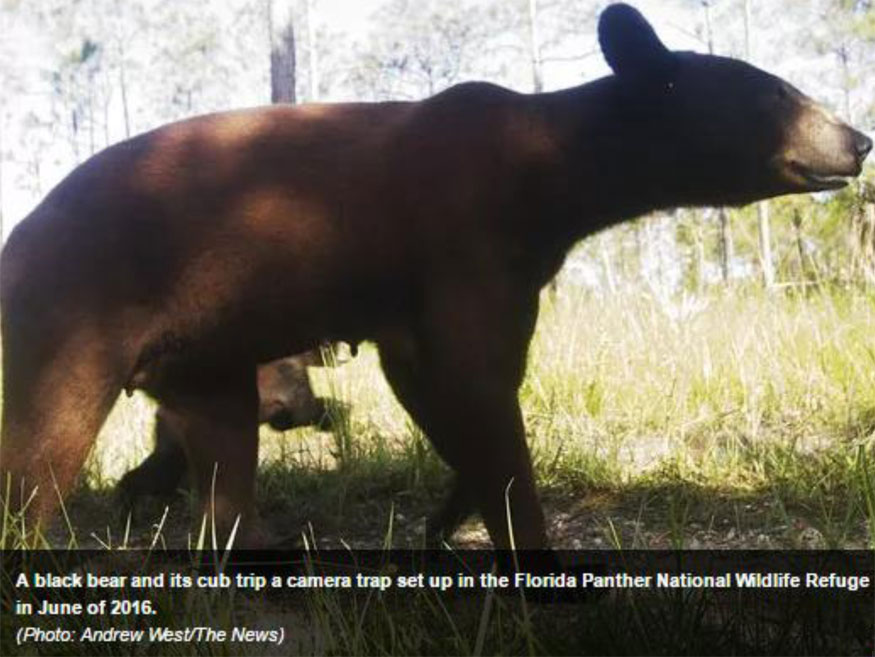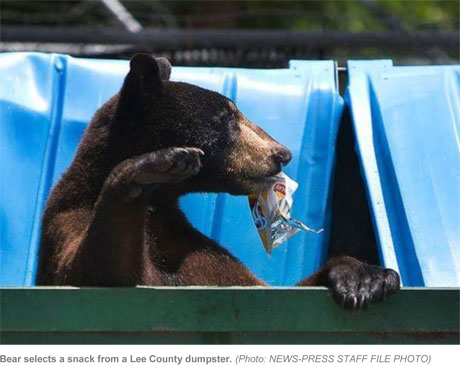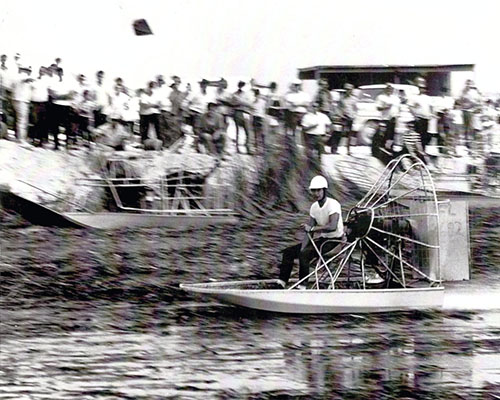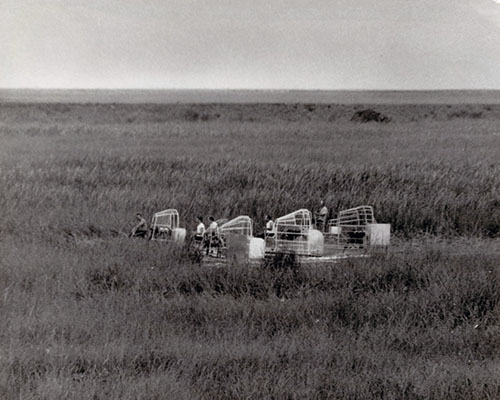By Chad Gillis | Contact Reporter
News-Press

Environmental groups breathed a sigh of relief Wednesday after the state voted to not hold a bear hunt this year.
The Florida Fish and Wildlife Conservation Commission voted 4-3 Wednesday to hold off on a 2017 hunt. A hunt was held in 2015, and it garnered national and international coverage due to public outrage.
“When you’re approaching the capacity, then a hunt is a management tool,” said commissioner Ron Bergeron, who voted against setting a quota for a 2017 hunt. “Due to this being an icon animal, I think it deserves higher appreciation. I look at the bear like I look at a bald eagle, a manatee or a panther.”
Florida closed bear hunting in 1994, but the state held a hunt in 2015 that claimed more than 300 bears in the first weekend of the season.
After public outcry, FWC shut the hunt down early.
“There’s no getting around it. It’s impacting our state and our citizens and I think most people are aware bears can cause problems,” said Thomas Eason, with FWC’s species and habitat division. “We’re somewhere in between having the hunt and working with everyone to understand how hunting fits into the broader context.”
Black bears here numbered as few as 300 to 500 in the 1970s but have grown to an estimated 4,350, according to FWC research.

FWC director Nick Wiley said biologists are in the middle of a 10-year bear management plan that includes various tools to control the growing bear population, which includes hunting.
“This bear management challenge has been the biggest challenge we’ve dealt with. And the most controversial,” Wiley said. “We firmly believe that the science is as solid as it can be. It’s absolutely rock solid, to support a sustainable hunt in some manner.”
Eason said the hunt has become a social issue as much as a scientific issues.
He said FWC needs to focus on educating the public about hunting and how it can help keep an animal from becoming too large, which can cause starving, disease and other impacts.
“We need more time to engage with people, and it may be that we can’t achieve that,” Eason said. “We’re going to be getting more bears, which means more potential for conflict and more road kills. We need to come together as Floridians to decide what our bear population should look like.”
Commissioner Aliese Priddy seemed frustrated, saying the science warrants a hunt but the state won’t approve one because of political and social pressure.
“I told you whenever I saw that the bear hunt was not going to go forward (in 2016) that we’d see ourselves right here at the same place kicking the can down the road one more time. And that’s exactly what happened,” Priddy said. “There’s really no scientific reason whatsoever to not have a hunt.”
There will not be discussion in 2018 about a bear hunt as the staff was directed to come back in two to three years with an updated bear management plan, on which commissioners could base a hunt.
Florida sold nearly 3,800 permits for the 2015 hunt, the first in more than two decades. Sales generated $375,000 in revenue, all of which goes toward the state’s bear management program.
The U.S. Fish and Wildlife Service says 215,000 Floridians hunted in 2011, the year in which the most recent numbers are available. That number represents about 1 percent of the Florida population, according to census records.
Steve Gafford of Collier County said there are ways other than hunting to enjoy Florida’s bears.
“It’s a prickly issue. There are people who want to kill bears and there are people who want to enjoy them in life,” Gafford said. “To us they’re like mascots, and it’s always a positive thing when I see one. I’ve never had a negative encounter. I enjoy being where bears are.”



